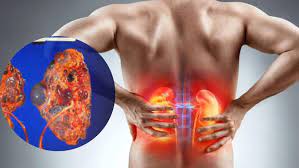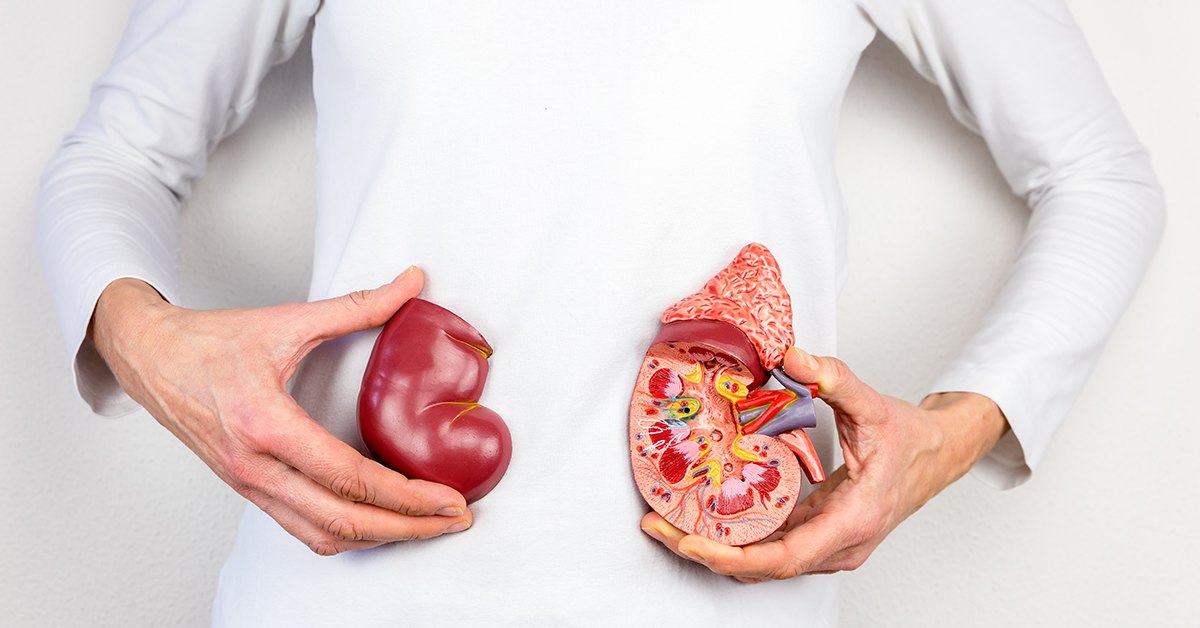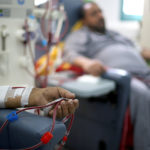Kidney infections, Causes and Symptoms
Kidney infections, also known as pyelonephritis, are a type of urinary tract infection (UTI) that can be caused by bacteria traveling up the ureters and infecting the kidneys. Kidney infections are more serious than other types of UTIs and require prompt medical attention to avoid complications.
Causes of Kidney Infections
The most common cause of kidney infections is bacteria, with E. coli being the most common type of bacteria that causes UTIs. Other types of bacteria, such as Klebsiella, Pseudomonas, and Enterococcus, can also cause kidney infections.

The bacteria that cause kidney infections usually enter the body through the urethra and travel up the urinary tract to the kidneys. Some factors that can increase the risk of developing a kidney infection include:
Urinary Tract Abnormalities: People with urinary tract abnormalities, such as a narrow urethra, a blockage in the urinary tract, or kidney stones, are at an increased risk of developing kidney infections.
Catheter Use: People who use urinary catheters are at an increased risk of developing urinary tract infections, including kidney infections.
Weakened Immune System: People with weakened immune systems, such as those with HIV/AIDS or those undergoing chemotherapy, are at an increased risk of developing kidney infections.
Sexual Activity: Women are at an increased risk of developing UTIs, including kidney infections, after sexual activity.
Pregnancy: Pregnant women are at an increased risk of developing UTIs, including kidney infections, due to hormonal changes that can affect the urinary tract.
Symptoms of Kidney Infections
The symptoms of a kidney infection can vary from person to person, but some common signs and symptoms include:
Pain in the Back or Side: Kidney infections can cause pain in the lower back or side. The pain may be sharp, stabbing, or dull, and it may be more severe on one side of the body.
Fever: A high fever is a common symptom of a kidney infection. The fever may come on suddenly and be accompanied by chills or sweats.
Urinary Symptoms: Urinary symptoms are common with a kidney infection, including a frequent need to urinate, painful urination, and blood in the urine.
Nausea and Vomiting: Many people with kidney infections experience nausea and vomiting. These symptoms can be severe and persistent, and they may make it difficult to eat or drink.
Fatigue: Kidney infections can cause fatigue and weakness. These symptoms may be mild or severe, depending on the severity of the infection.
Preventing Kidney Infection
There are several steps that you can take to help prevent kidney infection, including:
Drink Plenty of Water: Drinking plenty of water can help flush bacteria out of the urinary tract and reduce the risk of infection.
Practice Good Hygiene: Wash your hands regularly and practice good personal hygiene to help prevent the spread of bacteria.
Urinate After Sexual Activity: Urinating after sexual activity can help flush bacteria out of the urinary tract and reduce the risk of infection.
Use Lubricants: Using lubricants during sexual activity can reduce irritation and help prevent urinary tract infections.
Avoid Irritants: Avoid using products that can irritate the genital area, such as douches, powders, and sprays.
Diagnosing a Kidney Infection
If you suspect that you have a kidney infection, it is essential to see a healthcare provider as soon as possible. Your healthcare provider will likely perform a physical exam and order tests to confirm the diagnosis.
These tests may include a urine test to check for bacteria in the urine and blood tests to check for signs of infection or inflammation.
In some cases, your healthcare provider may order imaging tests, such as an ultrasound or CT scan, to check for signs of kidney damage or other complications.
Treating a Kidney Infection

The treatment for a kidney infection typically involves antibiotics to kill the bacteria causing the infection. Your healthcare provider may prescribe oral antibiotics or intravenous (IV) antibiotics, depending on the severity of the infection.
It is essential to take the full course of antibiotics as prescribed, even if you start feeling better before you finish the medication.
Failure to complete the full course of antibiotics can lead to the development of antibiotic-resistant bacteria and increase the risk of recurrent infections.
In addition to antibiotics, your healthcare provider may recommend pain relievers, such as acetaminophen or ibuprofen, to help manage the pain and fever associated with a kidney infection. It is also important to drink plenty of fluids to help flush out the bacteria from the urinary tract.
In severe cases, hospitalization may be necessary for IV antibiotics and supportive care. If the infection has caused significant damage to the kidneys, additional treatment may be necessary to manage complications and prevent long-term damage.
Conclusion
A kidney infection is a serious health condition that requires prompt medical attention. The symptoms of a kidney infection can include pain in the back or side, fever, urinary symptoms, nausea and vomiting, fatigue, and confusion.
If you suspect that you have a kidney infection, it is essential to see a healthcare provider as soon as possible for diagnosis and treatment. With appropriate treatment, most people with kidney infections recover without complications.
Benefits of Eating Strawberries

A graduate of Computer Science and Information Management Technology. Diploma – Caregiving, Certificates – Dementia and Diabetes Awareness and Management. A researcher, blogger, songwriter, singer and acoustic guitarist. Born in an environment where natural talents such as healing are imparted at our natural birth. This natural talents of healing is the result of our genetic inheritance and the training from family environment.

















